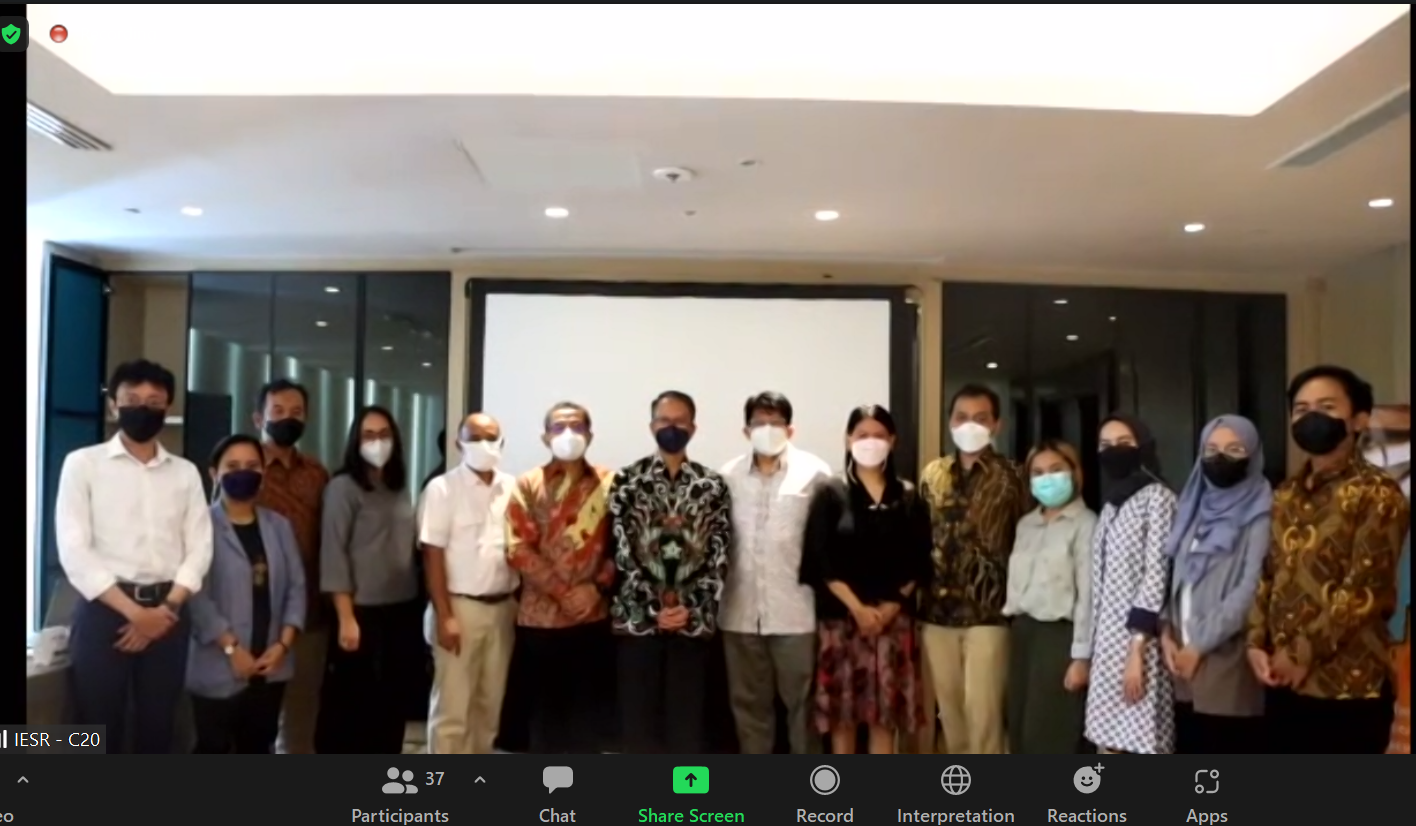Jakarta, 25 April 2022 – The G20 Presidency this year presents a variety of themes that try to accommodate several aspirations from various working groups. One of them is from civil society or Civil of 20 (C20). C20 has formulated priority issues related to environmental issues, climate justice, sustainable finance, and energy transition. To align priority issues, the Working Group on Environment, Climate Justice and Energy Transition (ECEWG) C20 held a consultation meeting with the government working group under the sherpa-track on the energy transition (ETWG), climate sustainability (EDM-CSWG), and the sustainability finance working group (SFWG).
Deputy for Coordination of International Economic Cooperation, Coordinating Ministry for Economic Affairs, Edi Prio Priambudi, said that currently not only solving the pandemic, but at this time Indonesia also received additional mandates both in the G20 Presidency and acted as Co-Chair at the UN Global Crisis Response Group (GCRG).
“Homework and challenges also increase, especially for mitigating three global crises, namely food security, energy transition, and facing fiscal constraints,” he said.
Edi relates this to the right of every citizen, as regulated in Article 28H of Law, to obtain a clean environment and live a healthy life. According to him, this opportunity should be used to fulfill joint obligations and protect the environment. He hopes that Indonesia can collaborate in finding ways to apply best practices to concrete results.
Fabby Tumiwa, Co-Chair of C20 and Executive Director of IESR, said that C20 is currently gathering aspirations from its members to promote a just energy transition.
“Currently, C20 consists of 177 institutions consisting of 35 countries, and from this workshop, all parties will be informed of the process and results of discussions with G20 members and align them with priority issues. In addition, of course, the planning of C20 activities will ensure a people-at-center approach and a fair and inclusive transition,” said Fabby.
Supporting Fabby’s statement, Lisa Wijayani explained the activities carried out by ECEWG since January 2022, including engagement group discussions, global-networking events, capacity building, and plans for webinars related to the findings of the Intergovernmental Panel on Climate Change (IPCC).
“The priority issues that are of concern to the members are climate justice (inclusive adaptation and mitigation, clean energy inclusiveness, transitional justice); environment (ecosystem restoration, marine biodiversity, plastic waste); and the energy transition (coal as stranded assets, sustainable finance, green jobs),” she added.
Meanwhile, Prahoro Yulianto Nurtjahjo, Head of the Human Resources Development Agency, Ministry of Energy and Mineral Resources (ESDM), explained the results of the first ETWG meeting last March. He explained that the priority issues discussed and agreed upon were the three pillars of energy transition: securing energy accessibility, improving clean and innovative energy technology, and advancing energy financing.
“Furthermore, at ETWG-2, a series of webinars will be held to prepare the communique draft and building blocks,” he said.
On the other hand, the climate delegates of the EDM-CSWG have discussed priority issues, namely land restoration, actions to conserve the ocean, and resource mobilization in support of environmental and climate protection goals.
“The results of several meetings show that developing countries emphasize adaptation as important as mitigation and the principle of Common but Differentiated Responsibilities and Respective Capabilities (CBDR_RC). However, it is equally important that financial mobilization and participation from the private sector and partnerships also need to be strengthened,” said Emma Rachmawati, a representative from EDM-CSWG and the Ministry of Environment and Forestry (KLHK).
Meanwhile, to support funding related to climate policy, the Center for Climate Change Financing Policy and Multilateral Fiscal Policy Agency of the Ministry of Finance, Dalyono, through the SFWG, is currently preparing a roadmap for sustainable finance.
“We are also currently compiling three workstreams, including reporting on the progress of the sustainable finance roadmap, increasing the credibility of financial institutions, and improving financial instruments that are more accessible and affordable.”
The joint discussion with this working group agreed that the implementation of the Indonesian G20 Presidency is expected to be not only a narrative or written agreement and concrete and provide tangible and inclusive benefits, not only for Indonesia but also for the world.

